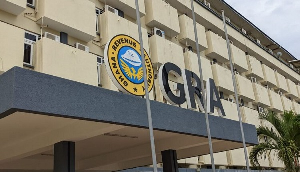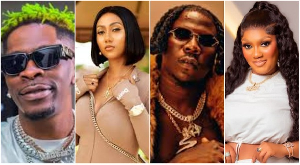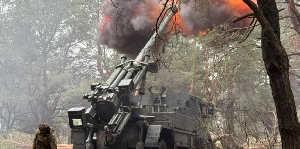With Ivory Coast on the brink of war, it has been revealed that President Mills, together with six other African leaders, are supporting Laurent Gbagbo in his bid to stay in office as President of Ivory Coast, a position he is currently usurping as a result of the constitutional coup he staged after last year's presidential elections.
In an interview published on Wednesday by the Daily Fraternité Matin, a day before a crucial Africa Union meeting which is set to discuss the Ivorian crisis, Laurent Gbagbo’s Ministerof Foreign Affairs, Alcide Djédjé has named as seven (7) countries he describes as "allies" to the cause of Laurent Gbagbo.
According to the Foreign Minister, these allies "include Angola, Uganda, South Africa, Democratic Republic of Congo, Gambia, Equatorial Guinea, and Ghana ".
"There are some who do not manifest themselves openly, but still support us", assured Mr. Djedje, who is representing Gbagbo at theAU meeting in Addis Ababa on Thursday.
Recent actions, inactions and pronouncements by leaders of the countries, named by Mr. Djedje, prior to and in the aftermath of the Ivorian Elections confirm that Laurent Gbagbo, indeed, has allies who are backing his refusal to cede power to Mr. Ouattara.
It can be recalled that in interview granted the Africa Report Magazine on the 26th of October 2010, Laurent Gbagbo named President Mills as one of his counterparts who expressed support for him in the elections.
“John Atta Mills of Ghana came here to give support. Jacob Zuma of South Africa announced his support and has already sent me a minister. José Eduardo dos Santos, of Angola, sent an emissary,” Gbagbo said.
On the 7th of January 2011, at an encounter with the Press to commemorate his 2 years of being in office, President Mills asked Ghanaians to “Mind your own business” or “Dzi Wo Fie Asem” when asked about his stance on the crisis brewing in the Ivory Coast.
International politics experts described the president’s statement as “naïve”, “broken ranks with ECOWAS” and “jumping-the-gun”.
Angolan President Jose Eduardo dos Santos, on the 14th of January 2011, said the UN had misled the international community when it validated Mr. Ouattara's victory and he called for fresh elections to be run in the Ivory Coast.
South Africa also said the result was “inconclusive” and stepped back from condemning incumbent leader Laurent Gbagbo.
Gambia's President Yahya Jammeh has also openly taken sides in the ongoing political crisis in Ivory Coast, expressing support for defeated former President Laurent Gbagbo. The Gambian president, in a statement read on his behalf by his Secretary General on the 31st of December 2010, recognized Laurent Gbagbo as President of Ivory Coast and described ECOWAS’ military option as illegal.
The UN, as requested by the parties, certified the victor in the November run-off elections, declaring that Mr. Ouattara was the clear victor in what was meant to be the culminating point in reunifying a country split by civil war in 2002 into a Government-controlled south and a rebel-held north.
But Mr. Gbagbo's constitutional court threw out many votes from Mr. Ouattara's northern heartland, declaring Mr. Gbagbo elected. He has since refused to step down, although the UN, AU and ECOWAS, and many individual countries all recognize Mr. Ouattara as the rightfully elected president.
There is no doubt that Gbagbo lost the election. Ouattara had a winning margin of more than 350,000 votes, and the UN certified the vote as free and fair. In an attempt to reverse the outcome, the Constitutional Council – firmly in the hands of Gbagbo supporters – largely fabricated fraud in the centre and north, where Ouattara enjoys huge support, pushing the incumbent's share of the vote over 50% and declaring him the winner.
Gbagbo has since become an international pariah, digging in his heels and ignoring strong pressure to leaveapparently because of the backing he enjoys from these seven (7) African Leaders including President Mills.
Violent incidents have been building in number and intensity. The UN has reported close to 400 deaths, mostly Ouattara supporters, as well as rapes and disappearance at the hands of pro-Gbagbo security forces. In one particularly shocking incident, the army last week opened fire on peaceful protesters in the largest city, Abidjan, killing seven women.
The UN refugee agency, UNHCR, said parts of the city resemble a war zone.
General News of Wednesday, 9 March 2011
Source: Statesman












